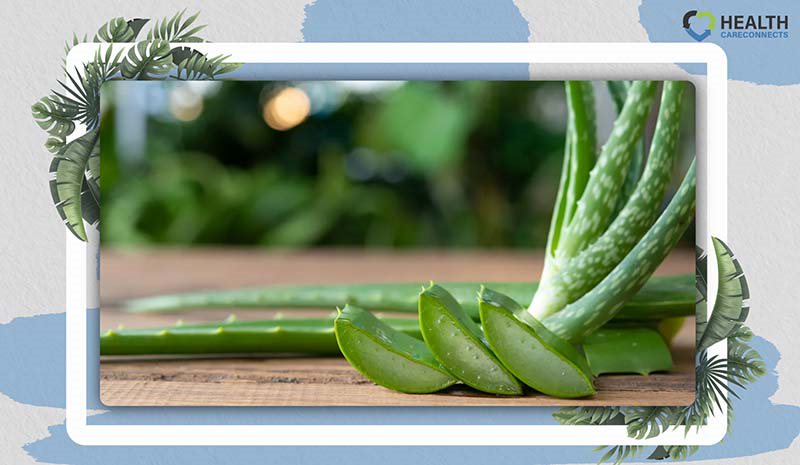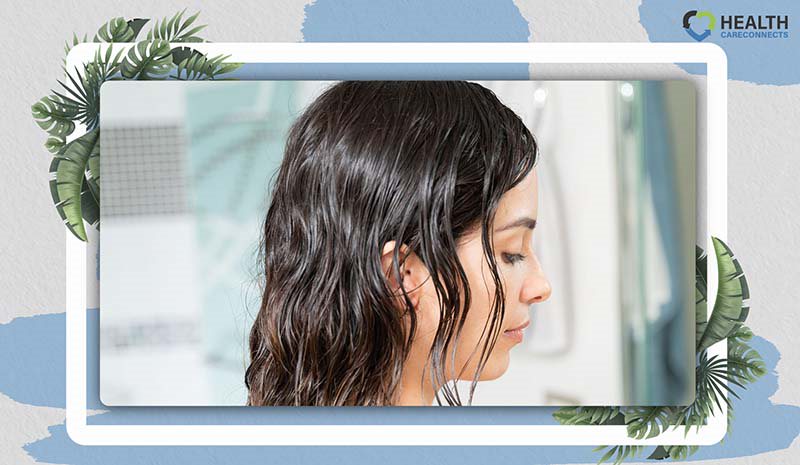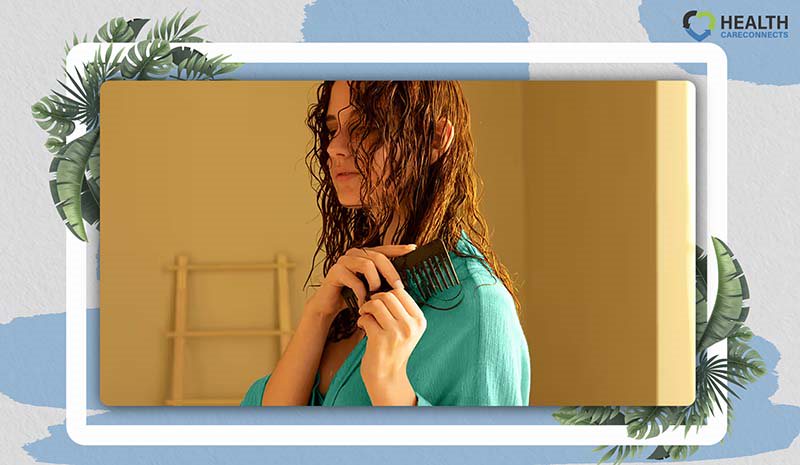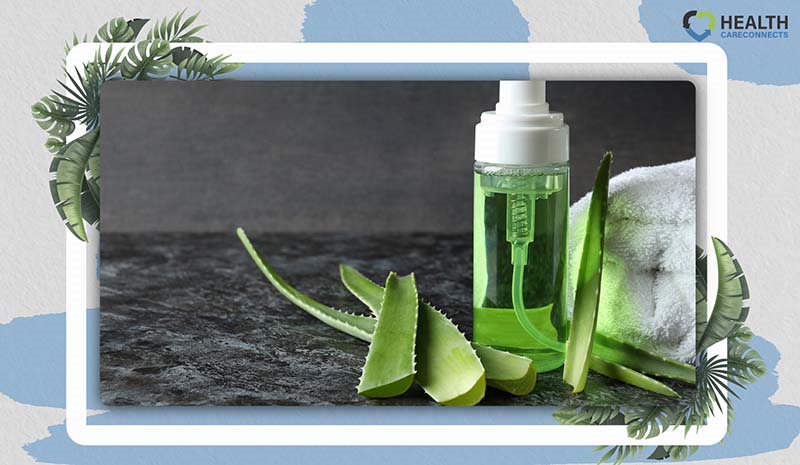Aloe vera is a renowned super-hydrator you’ve probably used on your face and body to soothe sunburned skin. But did you know its healing benefits extend beyond sunburns and skincare?
Recently, this cooling, moisturizing plant has gained attention for its shine-enhancing and hair repair benefits.
Here’s everything you need to know about this green wonder and how it can help you achieve healthier, shinier, and more beautiful hair.
Is Aloe Vera Good for Low Porosity Hair?
Aloe vera is often touted as a wonder plant for hair care, especially for those with low porosity hair. Its slightly acidic nature, with a pH close to 6, can assist in opening the tight cuticles characteristic of low porosity hair, facilitating better moisture absorption. The gel or juice extracted from aloe vera serves as a humectant, effectively drawing moisture to the hair and helping to keep it hydrated.
Despite its benefits, aloe vera’s acidic properties can sometimes lead to dryness if the pH balance skews too low for your hair type. Additionally, aloe vera includes a protein-simulating compound that might prove too dense for low porosity hair’s compact cuticles, potentially causing the hair to become brittle.
To truly gauge aloe vera’s impact, it’s advisable to conduct personal trials to see how your hair responds. Enhancing hydration methods, such as using warm water, applying deep conditioners with heat, and employing moisture-retention techniques like the LOC (liquid, oil, cream) or LCO (liquid, cream, oil) method, can significantly improve moisture retention for low porosity hair.

4 Benefits of Aloe Vera for Your Hair
Aloe vera is a versatile plant that offers multiple benefits for hair health. Here are four key advantages of incorporating aloe vera into your hair care routine:
Aloe Vera Soothes an Itchy Scalp
Seborrheic dermatitis, commonly known as dandruff, causes an itchy scalp and flaking skin. Aloe vera can treat these symptoms. A 1998 study found that aloe vera helped resolve scalp inflammation caused by dandruff.
The fatty acids in aloe vera have anti-inflammatory properties, providing relief from itchiness and irritation.

Aloe Vera Deeply Cleans Oily Hair
Aloe vera efficiently cleanses the hair shaft, removing excess sebum (oil) and residue from other hair products.
Unlike harsh chemicals in many hair products, aloe vera is gentle and preserves the integrity of your hair. Using aloe vera is a great way to achieve hair that looks healthier, shinier, and softer.
Aloe Vera Strengthens and Repairs Damaged Hair
Aloe vera contains numerous active ingredients and minerals that can strengthen your hair. It includes fatty acids, amino acids, and is rich in vitamins A, B12, C, and E, all essential for healthy hair follicles.
Known for its high collagen content and cooling properties, aloe vera is often used on the skin after sun exposure. These properties, along with its vitamin content, suggest that aloe vera may help repair sun-damaged hair.

Aloe Vera Can Promote Hair Growth
While there is no scientific proof that aloe vera directly promotes hair growth, some people believe it helps. Researchers have identified aloenin, a compound in aloe vera, as a factor in promoting hair growth in individuals with alopecia.
Aloe vera has been used to improve hair health and reduce breakage, which indirectly supports hair growth.
Instructions for Using Aloe Vera Effectively for Hair
While new aloe vera-spiked hair care formulas appear on the shelves each week, this healthy hair ingredient is best used in its natural form. “The best aloe you can use is straight from the plant—that way you know it’s 100% fresh, organic, and has no added chemicals,” says Kerrie Urban, an L.A.-based celebrity hairstylist.
Using aloe vera straight from the plant has added sustainability benefits—no wasted plastics and packaging—and the plant will continue to grow and replenish itself after each use, making it environmentally and cost-friendly. “Just remember, cutting into fresh aloe and using it right away is always best. Similar to when you’re juicing veggies, they start to lose certain vitamins and amino acids as they are exposed to air and break down over time,” says Urban.
To reap the most benefits when using aloe as a hair treatment, it’s recommended to apply it as a weekly deep conditioning mask to replenish moisture, soothe scalp irritations, and restore vibrancy to both natural and color-treated hair. Here’s how:
- Cut a fresh aloe vera leaf: Slice open the leaf to extract the gel.
- Apply the gel: Saturate your hair and scalp with a thin layer of aloe vera gel.
- Let stand: Let stand for 20 to 30 minutes.
- Rinse thoroughly: Rinse your hair thoroughly to ensure no residue is left behind. No need to shampoo after; just make sure the hair feels completely rinsed.

Tips for Using Aloe Vera for Hair
You can buy aloe vera gel from stores, but ensure you choose a product that contains 100% aloe vera without added ingredients like fragrances and alcohol.
Alternatively, you can extract the gel from aloe vera leaves. Some natural food stores sell the leaves, or you can grow aloe vera as a houseplant.
How to Remove Gel from an Aloe Vera Plant:
- Select a Leaf: Remove an older, thicker leaf from the outside of the plant.
- Drain the Latex: Let the yellow latex drain away from the leaf and discard it.
- Rinse the Leaf: Rinse the leaf thoroughly.
- Remove Spiny Ends: Use a sharp knife to cut off the spiny edges.
- Extract the Gel: Run your knife or peeler lengthwise along the leaf to remove the skin, then cut out or scoop the clear gel.
Fresh aloe vera gel doesn’t last long, but you can store it in a sealed container in the fridge for up to a week or freeze it for longer storage.
Hair and Scalp Treatment:
- Apply raw aloe vera gel directly to your hair and scalp.
- Work it in with your hands, covering your scalp, hair, and ends.
- To help seal in the moisture, apply a few drops of castor oil and massage it in.
- Leave the aloe vera in for about 30 minutes, then rinse it off.
For Greasy Hair:
- Mix 1 to 2 tablespoons of aloe vera gel with 1 tablespoon of lemon juice and 1 cup of water.
- After shampooing, rinse your hair with this solution.
- Leave it in for a few minutes, then rinse again.
Side Effects of Using Aloe Vera for Hair
In general, aloe vera is considered safe for external use, but the potential for allergic reactions should be kept in mind. To test for sensitivity, apply a small amount to the inside of your wrist and wait about two hours to observe any adverse reactions, such as a rash.
For those using topical steroid medications like hydrocortisone, use aloe vera with caution. Aloe vera can enhance the skin’s absorption of cortisone, potentially increasing side effects of the steroid cream.
Additionally, consuming aloe vera warrants caution. The latex found in aloe vera leaves and whole leaf extracts can be harmful in large quantities. Possible side effects from consuming high doses include kidney issues, abdominal pain, and diarrhea. Aloe vera may also interact with certain medications, such as blood thinners and diabetes drugs, altering their effectiveness. Always consult with a healthcare provider before adding aloe vera to your diet, especially if you are taking other medications.
Conclusion
Aloe vera offers several benefits for the scalp and hair, making it an excellent choice for enhancing softness and manageability. It may also help protect your hair from damaging UV rays. For those wondering, “Is aloe vera good for low porosity hair?”—using pure aloe vera can indeed be beneficial. For optimal results, it’s important to use 100% aloe vera juice or gel.
Many commercial products that claim to contain aloe vera often include insufficient amounts or add other ingredients that may diminish its effectiveness. By choosing pure aloe vera, you can take full advantage of its natural, nourishing properties, ensuring your low porosity hair receives the moisture it needs without being weighed down.
Now, we want to hear from you! Share your own experiences and stories with us in the comments below. And don’t forget to explore more insightful blogs on nail care and health from Sure Life Health. Keep nurturing those nails with vitamin E, and watch them flourish!
Professor Gaye Cunnane, PhD, MB, FRCPI
As the Director of Health and Wellbeing at RCPI, Professor Gaye Cunnane is at the helm of initiatives aimed at enhancing the health and well-being of RCPI Trainers and Trainees. Her role extends beyond administration; she is also a respected clinical professor of rheumatology and a consultant rheumatologist at Trinity College Dublin (TCD) and St James’s Hospital. Prof. Cunnane’s medical journey began at TCD, where she graduated from medical school, and her path has been marked by both clinical and academic excellence.
After completing her basic clinical training in medicine, she embarked on PhD studies at University College Dublin and St Vincent’s University Hospital. Her research during this period was focused on prognostic markers in early inflammatory arthritis, a project that saw her collaborating with esteemed universities across Europe, including in Switzerland, The Netherlands, the UK, and Sweden.
Prof. Cunnane’s career took her to the University of California, San Francisco, where she spent three years delving into research on new treatments for lupus. Her academic prowess led her to the University of Leeds in 2001 as a senior lecturer, before returning to Ireland in 2003 to assume her current roles. She has also served as the National Specialty Director for Rheumatology training in Ireland, Programme Director for Basic Specialist Training with RCPI, and as a past President of the Irish Society for Rheumatology.
PUBLISHED ARTICLES
“Rheumatic disease differentiation using immunoglobulin G sugar printing by high-density electrophoresis”: Published in The Journal of Rheumatology, this study reflects her in-depth investigation into rheumatic diseases.
“Benefits of exercise in patients with rheumatoid arthritis: a randomized controlled trial”: This research work, highlighting the positive impact of exercise on rheumatoid arthritis, underscores Prof. Cunnane’s dedication to practical, patient-centered research.
Additionally, Prof. Cunnane has made notable contributions to the Annals of the Rheumatic Diseases, discussing early referral, diagnosis, and treatment of rheumatoid arthritis. She has also been involved in a study on the NCBI platform investigating exercise benefits in rheumatoid arthritis patients.
Professor Gaye Cunnane’s career is a testament to her commitment to improving patient outcomes in rheumatology through rigorous research, clinical excellence, and dedicated teaching. Her work continues to influence the field of rheumatology, both in Ireland and internationally.

